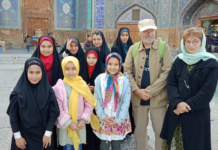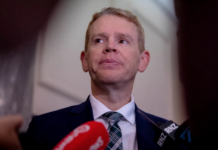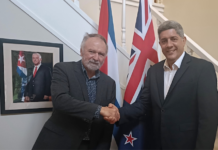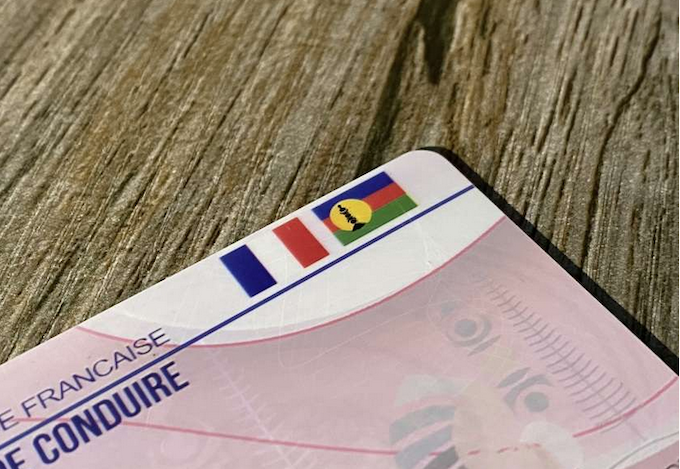
By Patrick Decloitre, RNZ Pacific Correspondent French Pacific desk
French Minister for Overseas Manuel Valls has ended an extended seven-day visit to New Caledonia with mixed feelings.
On one hand, he said he was confident his “Bougival deal” for New Caledonia’s future is now “more advanced” after three sittings of a “drafting committee” made up of local politicians.
On the other hand, despite his efforts and a three-hour meeting on Tuesday before he returned to Paris, he could not convince the FLNKS (Kanak and Socialist National Liberation Front) — the main component of the pro-independence camp — to join the “Bougival” process.
- READ MORE: French PM’s confidence vote hits New Caledonia’s political negotiations
- Other Kanaky New Caledonia reports
The FLNKS recently warned against any attempt to “force” an agreement they were not part of, raising concerns about possible unrest similar to the riots that broke out in May 2024, causing 14 deaths and more than 2 billion euros (about NZ$3.8 billion) in material damage.
The unrest has crystallised around a constitutional reform bill that sought to change the rules of eligibility for voters at local provincial elections. The bill prompted fears among the Kanak community that it was seeking to “dissolve” indigenous votes.
But despite the FLNKS snub, all the other pro-independence and pro-France parties took part in the committee sessions, which are now believed to have produced a Constitutional Reform Bill.
That bill is due to be tabled in both France’s parliament chambers (the National Assembly and the Senate) and later before a special meeting of both houses (a “Congress” — a joint meeting of both Houses of Parliament).
Valls still upbeat
Speaking to local reporters just before leaving the French Pacific territory on Tuesday, Valls remained upbeat and adamant that despite the FLNKS snub, the Bougival process is now “better seated”.
“When I arrived in New Caledonia one week ago, many were wondering what would become of the Bougival accord we signed. Some said it was still-born. Today I’m going back with the feeling that the accord is comforted and that we have made considerable advances,” he said.
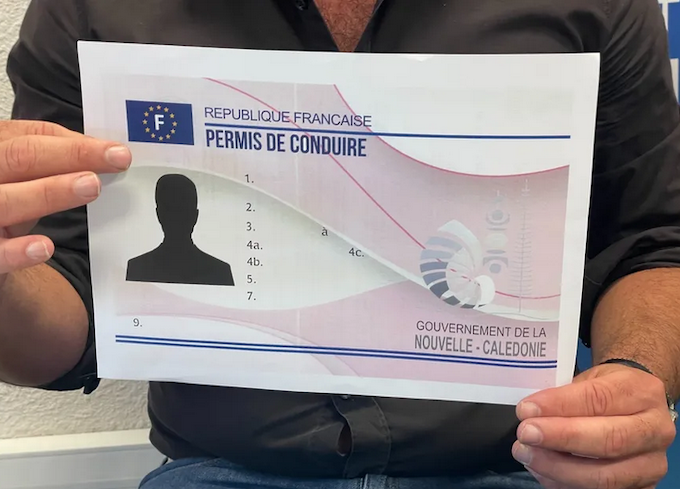
He pointed out that non-political players, such as the Great Traditional Indigenous Chiefs Customary Senate and the Economic and Social Council, also joined some of the “drafting” sessions to convey their respective input.
Valls hailed a “spirit of responsibility” and a “will to implement” the Bougival document, despite a more than three-hour meeting with a new delegation from FLNKS just hours before his departure on Tuesday.
The FLNKS still opposes the Bougival text their negotiators had initially signed, that was later denounced following pressure from their militant base, invoking a profound “incompatibility” of the text with the movement’s “full sovereignty” and “decolonisation” goals.
Also demands for this process to be completed before the next French Presidential elections, currently scheduled for April-May 2027.
The Bougival deal signed on July 12 near Paris was initially agreed to by all of New Caledonia’s political parties represented at the local parliament, the Congress. However, it was later denounced and rejected “in block” by the FLNKS.
Door ‘remains open’
Valls consistently stressed that his door “remains open” to the FLNKS throughout his week-long stay in New Caledonia. This was his fourth trip to the territory since he was appointed to the post by French Prime Minister François Bayrou in December 2024.

He pointed out that non-political players, such as the (Great Traditional Indigenous Chiefs) Customary Senate and the Economic and Social Council, also had joined some of the “drafting” sessions to convey their input.
In a statement after meeting with Valls, the FLNKS reiterated its categorical rejection” of the Bougival process while at the same time saying it was “ready to build an agreement on independence with all [political] partners”.
“I will continue working with them and I also invite FLNKS to discuss with the other political parties. I don’t want to strike a deal without the FLNKS, or against the FLNKS,” he told local public broadcaster NC 1ère on Tuesday.
He said the Bougival document was still in a “decolonisation process”.
‘Fresh talks’ in Paris
Valls repeated his open-door policy and told local media that he did not rule out meeting FLNKS president Christian Téin in Paris for “fresh talks” in the “next few days”.
Téin was released from jail mid-June 2025, but he remains barred from returning to New Caledonia as part of judicial controls imposed on him, pending his trial on criminal-related charges over the May 2024 riots.
At the time, Téin was the leader of a CCAT (field action coordinating cell) to mount a protest campaign against a Constitutional reform bill that was eventually scrapped.
The CCAT was set up late 2023 by one of the main components of the FLNKS, Union Calédonienne.
While he was serving a pre-trial jail term, in August 2024, Téin was elected president in absentia of the FLNKS.
As for FLNKS’s demand that they and no other party should be the sole representatives of the pro-independence movement, Valls said this was “impossible”.
“New Caledonia’s society is not only [made up of] FLNKS. There still exists a space for discussion, the opportunity has to be seized because New Caledonia’s society is waiting for an agreement”.
However, some political parties (including moderates such as Eveil Océanien (Pacific Islanders’ Awakening) and pro-France Calédonie Ensemble have expressed concern on the value of the Bougival process if it was to be pushed through despite the FLNKS non-participation.
Other pro-independent parties, the PALIKA (Kanak Liberation Party) and the UPM (Union Progressiste en Mélanésie), have distanced themselves from the FLNKS coalition they used to belong to.
They remain committed to their signature and are now working along the Bougival lines.
‘There won’t be another May 13’
Valls said the the situation is different now because an agreement exists, adding that the Bougival deal “is a comprehensive accord, not just on the electoral rules”.
On possible fresh unrest, the former prime minister said “this time, [the French State will not be taken by surprise. There won’t be another 13 May”.
He stressed during his visit that some 20 units (over 2000) of law enforcement personnel (gendarmerie, police) remain posted in New Caledonia.
“And there will be more if necessary”, Valls assured.
When the May 2024 riots broke out, the law enforcement numbers were significantly lower and it took several days before reinforcements from Paris eventually arrived in New Caledonia to restore law and order.
Very tight schedule
The Constitutional Reform Bill would cover a large spectrum of issues, including the creation, for the first time in France, of a “State of New Caledonia”, as well as a dual France/New Caledonia citizenship, all within the French Constitutional framework.
Two other documents — an organic law and a fundamental law (a de facto constitution) — are also being prepared for New Caledonia.
The organic law could come into force some time mid-October, if approved, and it would effectively postpone New Caledonia’s crucial provincial election to June 2026.
The plan was to have the freshly-produced text scrutinised by the French State Council, then approved by the French Cabinet on September 17.
Before the end of 2025, it would then be tabled before the French National Assembly, then the Senate, then the French special Congress sitting.
And before 28 February 2026, the same text would finally be put to the vote by way of a referendum for the people of New Caledonia.
French government to fall again?
Meanwhile, Valls is now facing another unfavourable political context: the announcement, on Monday, by his Prime Minister François Bayrou, to challenge France’s National Assembly MPs in a risky motion of confidence.
This, he said, was in direct relation to his Appropriation Bill (budget), which contains planned sweeping cuts of about 44 billion euros (NZ$87.4 billion) to tackle the “danger” of France further plunging into “over-indebtment”.
If the motion, tabled to be voted on September 8, reveals more defiance than confidence, then Bayrou and his cabinet (including Valls) fall.
In the face of urgent initial plans to have New Caledonia’s texts urgently tabled before French Parliament, Bayrou’s confidence vote is highly likely to further complicate New Caledonia’s political negotiations.
Pro-France leader and former French cabinet member Sonia Backès, who is also the leader of local pro-France Les Loyalistes party, however told local media she remained confident and that even if the Bayrou government fell on September 8, “there would still be a continuity”.
“But if this was to be followed by a dissolution of Parliament and snap elections, then, very clearly, this would impact on the whole New Caledonian process”, she said.
“The Bougival agreement will be implemented,” Valls said.
“And those who think that the fall of the French government would entail delays on its implementation schedule are mistaken, notwithstanding my personal situation which is not very important.
“I will keep a watch on New Caledonia’s interests.”
This article is republished under a community partnership agreement with RNZ.






